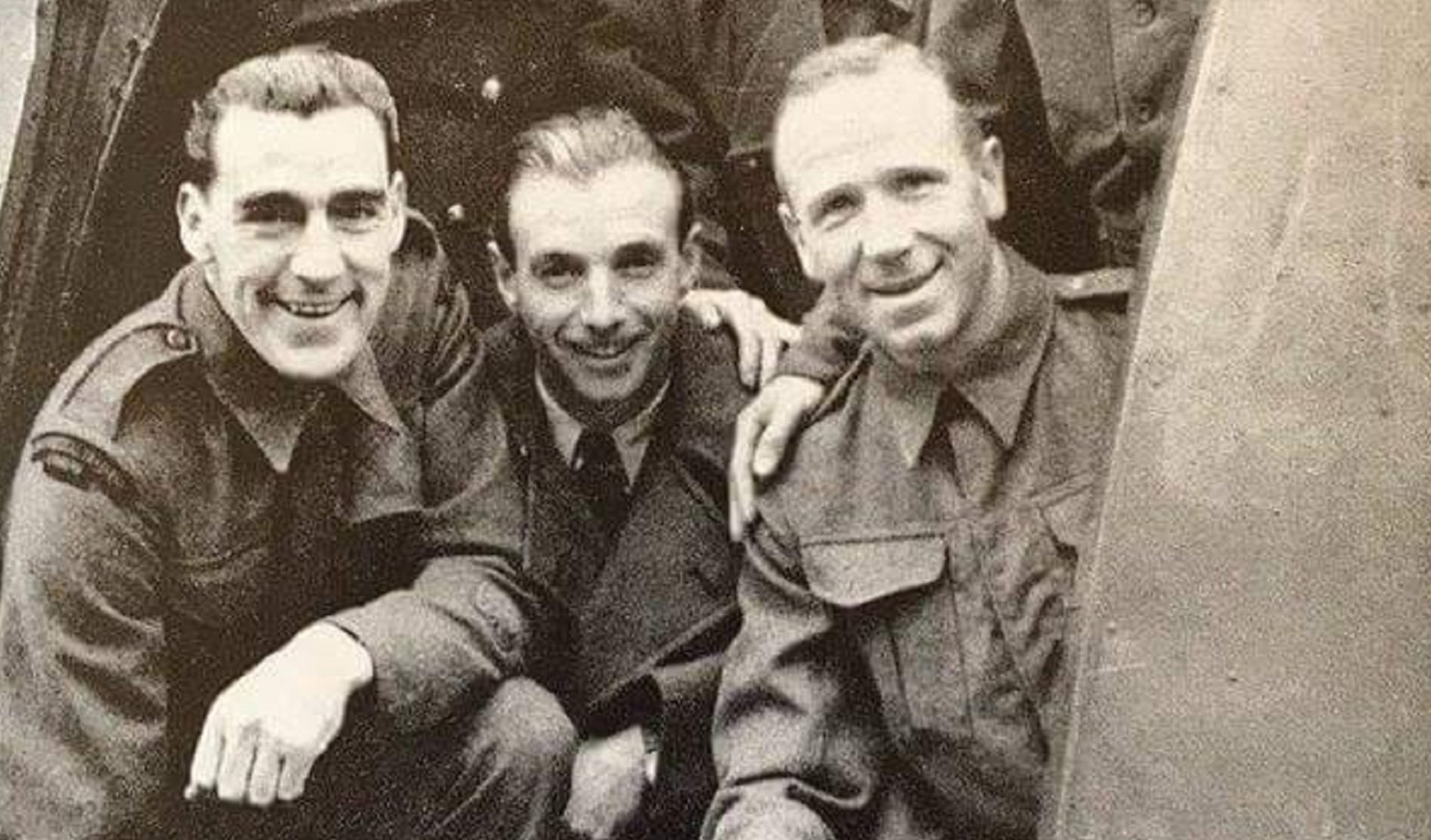Manchester City legend Frank Swift and Manchester United’s most cherished manager Matt Busby were close friends for many years, and both were, of course, tragically on the plane that crashed in Munich on 6 February 1958, killing a total of 23 people – eight United players, plus three members of the backroom staff and among the other 11 who lost their lives, was the idolised Swift.
Matt Busby, the manager of the exciting ‘Busby Babes’ team, twice received the last rites as he fought for his life, but remarkably recovered and left hospital some 10 weeks later.
He would never forgot those lost in the crash and particularly, of course, Frank Swift, his friend of 26 years.
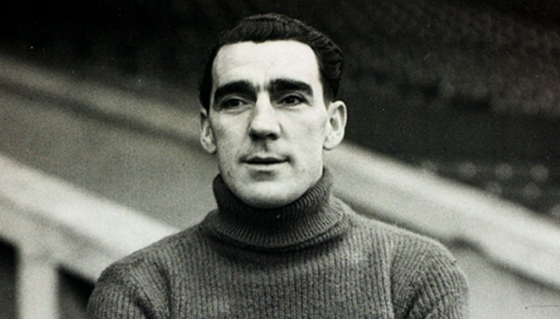
The pair first became team-mates in 1932 when Swift, an 18-year-old Blackpool Gas Works employee, accepted an offer to sign as an amateur at Manchester City.
Busby had already been at City for four and half years by that stage and was by then 23, but the pair hit it off immediately.
Still learning his trade, a year later, the rookie Swift would watch Busby and his team-mates lose the 1933 FA Cup final to Everton at Wembley.
The 3-0 defeat left the City players crestfallen, but skipper Sam Cowan vowed to return a year later and win the competition.
Swift was still down the pecking order for the 1933/34 season, until a sequence of events handed him the chance he’d been waiting for.
Regular No.1 Len Langford sustained an injury just before Christmas, and back-up keeper James Nicholls stepped up as City took on Wolves at Molineux.
It would be a brief stint for Nicholls who conceded eight goals in a forgettable 90 minutes.
Swift was then called up for his debut, as City travelled to the Baseball Ground to take on Derby County in a Christmas Day fixture.
It wasn’t the best of starts for the youngster, who would concede four goals, but City faced the Rams again 24 hours later on Boxing Day – Swift’s 20th birthday -and this time the strapping keeper kept as clean sheet in a 2-0 win.
He would play every game for the next four seasons.
Swift and Busby would both line-up – as Cowan had predicted – in the 1934 FA Cup final, with Swift outstanding in the 2-1 win over Portsmouth.
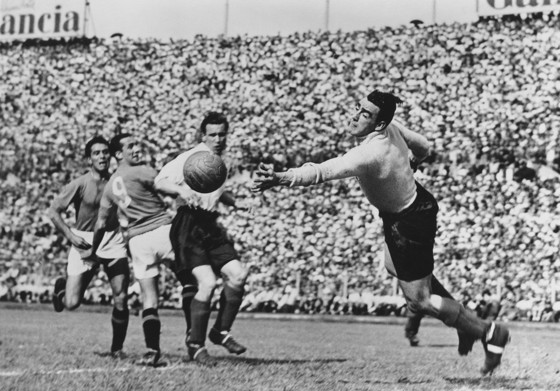
Overcome by the occasion, Swift fainted after the final whistle - much to his embarrassment - but recovered in time to be presented with his winner’s medal by the King.
The pair socialised outside of football and enjoyed each other’s company, but though Busby was a highly-rated half-back, he eventually lost his place to Jack Percival and in March 1936, eight years after he’d joined the Blues, the 26-year-old Scot was sold to Liverpool for a fee of £8,000.
But the friends would be reunited during wartime, when both joined the Army Physical Training Corps based near Aldershot along with Stan Cullis, future City boss Joe Mercer and the great Tommy Lawton.
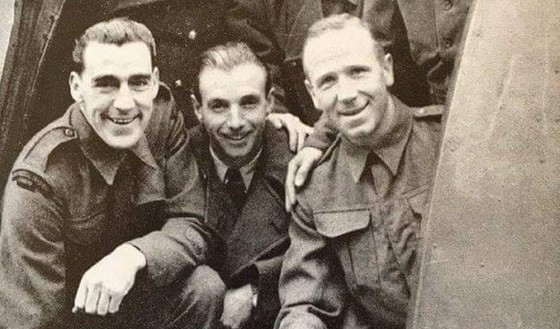
Swift (left) and Busby (right) pose with a pal in Aldershot
During that time, Busby agreed to become Manchester United’s new manager, despite being only 36.
Swift returned to City – he had played many games for the club during wartime – and helped the Blues back to the top flight with one of his best seasons yet, but despite only being 35, he decided that the 1948/49 campaign would be his last, claiming he wanted to go out on top rather than fade away.
He’d made 375 appearances for the Blues, with his wartime games edging that closer to 500 and he received a tumultuous send off from City supporters after his final game – though he would return for a handful more to help the Club out during a keeper crisis.
Busby tried to persuade his old friend to sign for United and give it a few more seasons, but City wisely retained the big No.1’s registration papers for several more years, just in case!
Swift, an intelligent man with a firm mastery of the English language, accepted an offer from the News of the World – a Sunday paper with an eight-million readership – to become a journalist with a remit of covering both City and United.
That meant regular visits to Maine Road and Old Trafford, and plenty of post-match chats with old pal Busby.
By 1958, Swift was one of the paper’s most respected football writers and the obvious choice to cover Manchester United’s vital European Cup quarter-final second leg with Red Star Belgrade.
After a thrilling 3-3 draw, the United team, staff, and journalists spent the evening at an official banquet in the city, with Swift and Busby regaling their old times at Maine Road, numerous Army adventures and the ensuing years that had seen their careers go in different, but successful directions.
The following day, the party left Belgrade with a stop at Munich Airport for refuelling before the continuation of the flight home to Manchester.
The treacherous conditions of snow, ice and slush were too dangerous for any aircraft to fly in, yet the British European Airways Flight 609 had two aborted take-offs.
Whether schedules or pressure to get the team back in good time for their next game weighed heavily on the pilots or not, the warnings were not heeded, and there would be another attempt to take off and this time, the plane crashed through a fence at the end of the runway and struck outbuildings, killing 20 people instantly.
Swift would die on the way to hospital, while Busby survived terrible injuries, finally returning home some 10 weeks later and eventually resuming managing the Reds and guiding them to European glory in 1968.
Exactly one month before the disaster, Swift – and former City team-mates Jimmy McMullen, Len Langford, and Frank Rodgers - had been one of the surprise guests as Eamonn Andrews presented Busby with the famous ‘Big Red Book’ on the ITV show This Is Your Life.
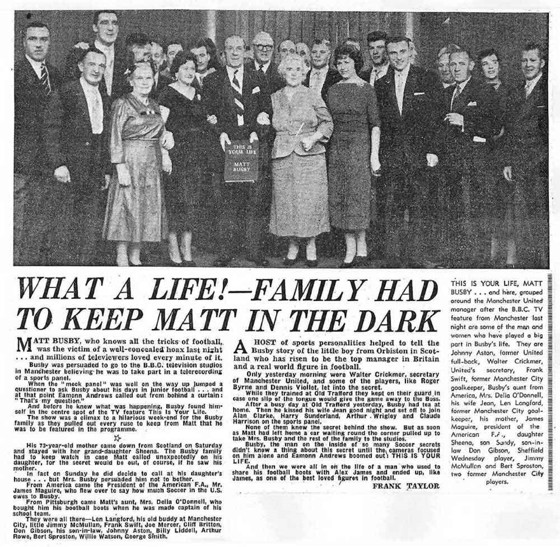
Sir Matt, as he later became, never forget his old friend Frank Swift, nor, of course, any of the other victims of that horrific day in Munich.

